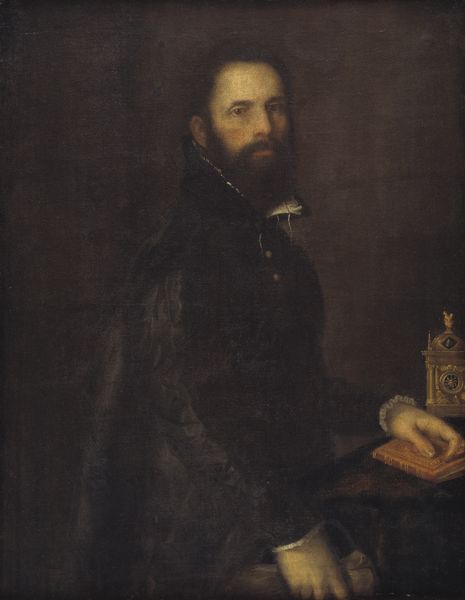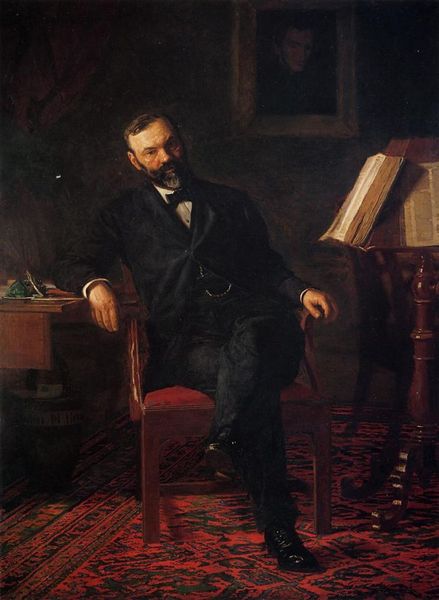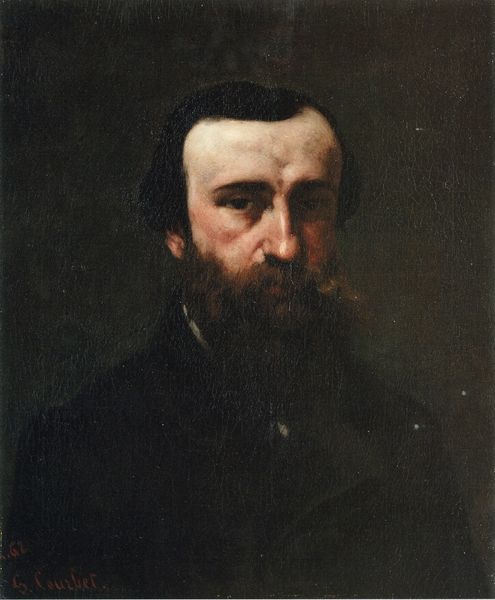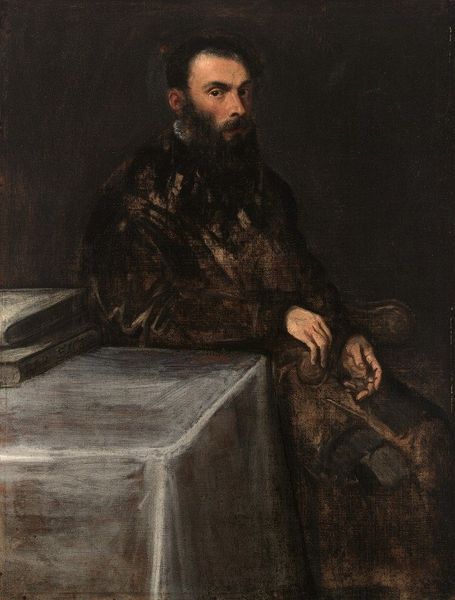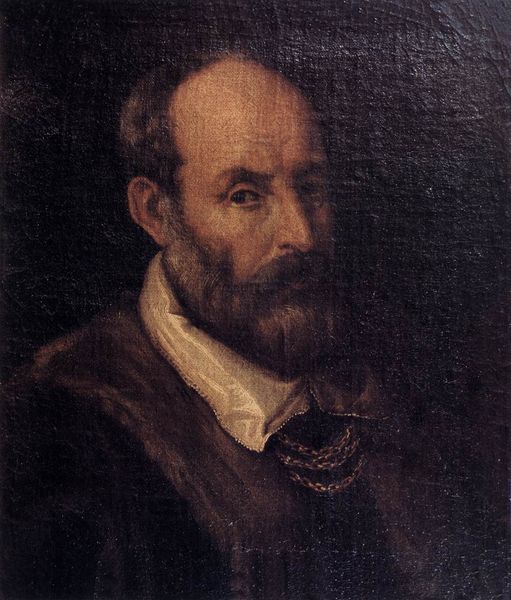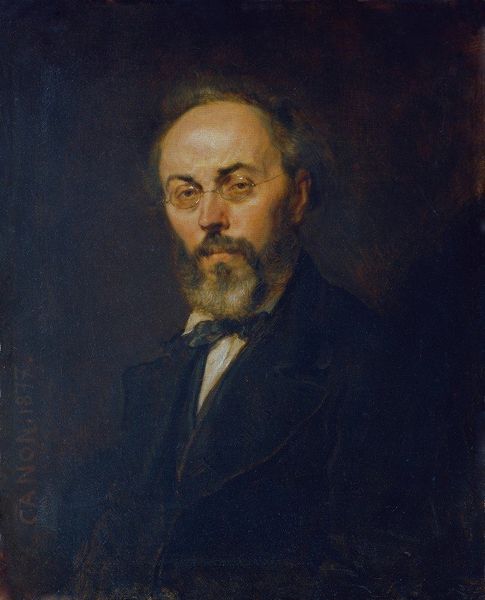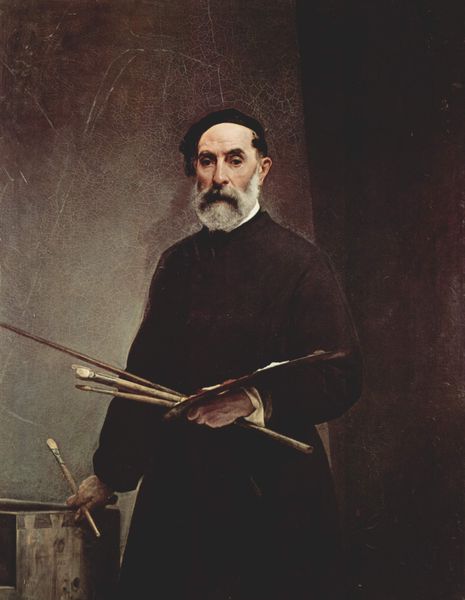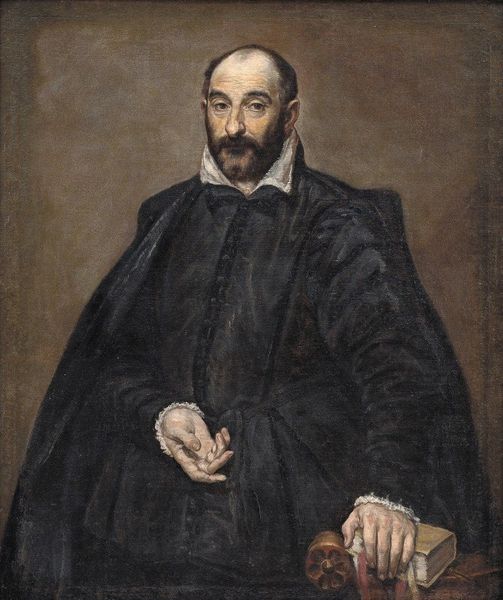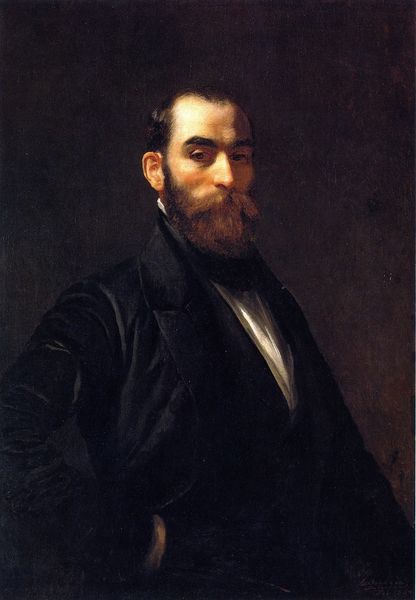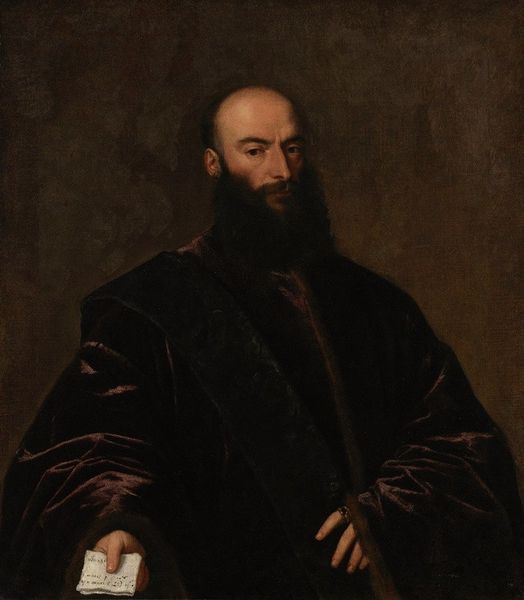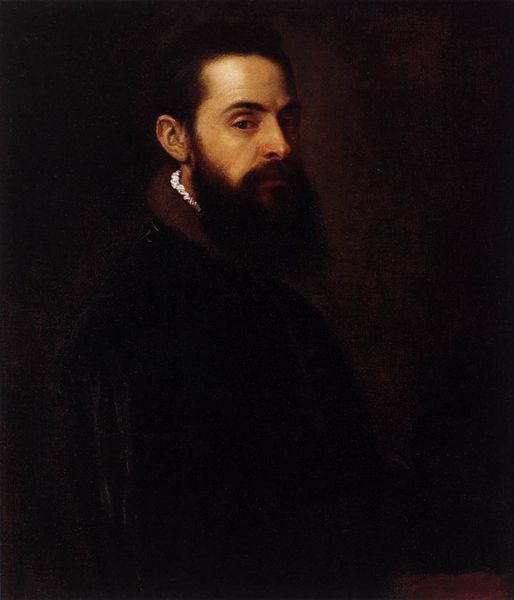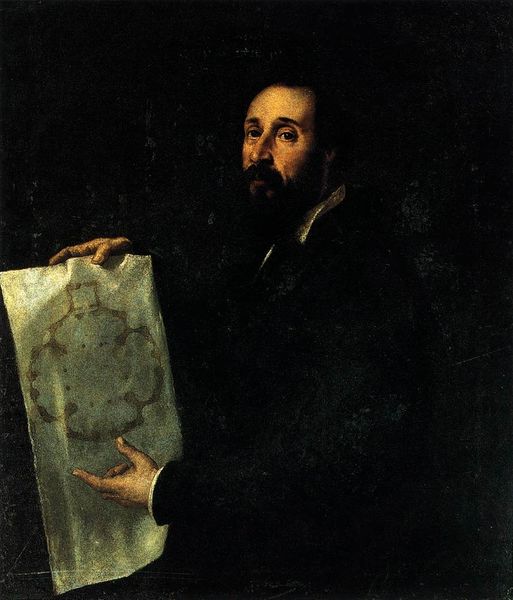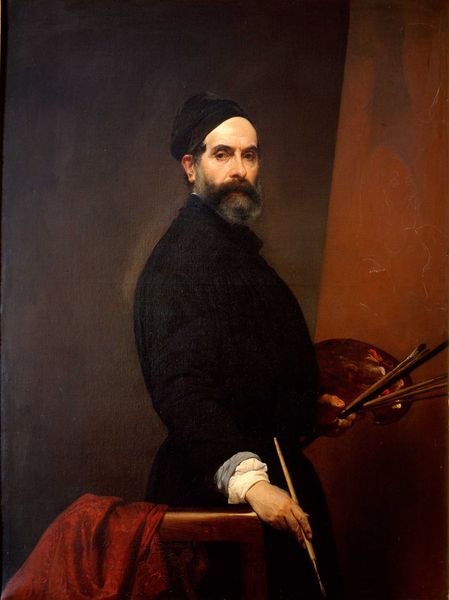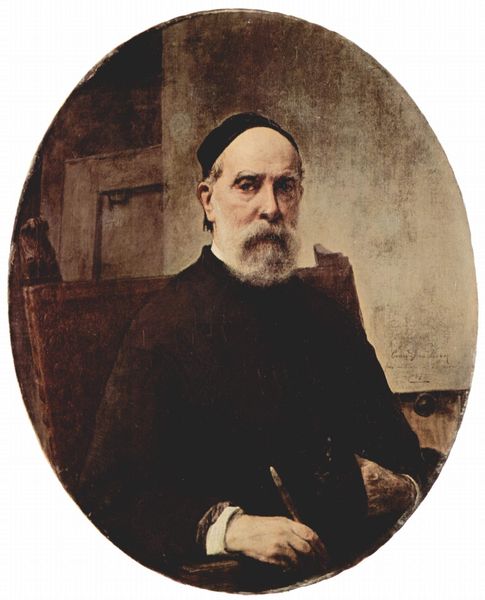
painting, oil-paint
#
portrait
#
painting
#
oil-paint
#
history-painting
#
academic-art
#
realism
Copyright: Public domain
Editor: Here we have Joan Brull’s "Portrait of Simó Gómez," an oil painting from 1880. There's a formality to it, and it almost feels like Brull is making a statement about the sitter’s social standing. How would you interpret this work? Curator: I see this portrait as a negotiation of identity and profession in late 19th-century Barcelona. Consider the backdrop—not just a generic studio, but a carefully curated display of the sitter's craft. What does it mean for Gómez, presumably a sculptor, to be portrayed amidst his work in this period? The dark suit against the artistic clutter suggests an attempt to balance bourgeois respectability with artistic innovation. Do you agree that this period placed particular constraints on artists and their self-representation? Editor: Definitely, it feels like Gómez is intentionally constructing an image for the public. The juxtaposition of his dark clothing with the lighter, almost classical tableau in the background seems intentional, almost performative. Curator: Precisely! And it makes one think about the broader societal expectations of male artists at that time. To what extent was Gómez conforming to or subverting those expectations through this portrait? Notice the direct gaze. Is it confident, or slightly defensive? I'd argue it's a careful performance aimed at securing his place within the evolving Catalan art scene. Editor: That's fascinating. I hadn't considered the defensive aspect. I initially saw confidence, but now I can see the subtle anxieties woven in. Curator: And that’s where the richness lies, isn’t it? This portrait reveals how identity is crafted in relation to social and political forces. We must ask: How does Brull’s portrayal either reinforce or challenge traditional notions of masculinity and artistic genius? Editor: This really shifted my perspective. I'll definitely be looking at portraits with a new set of questions going forward. Thanks! Curator: My pleasure. Always consider the narratives these portraits are trying to tell, and who gets to control the narrative.
Comments
No comments
Be the first to comment and join the conversation on the ultimate creative platform.
